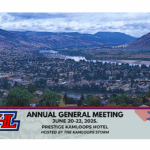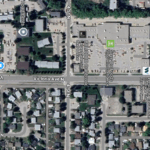Home »

Wildsight calls out B.C.’s mine bonding shortfall
Two years after the BC Auditor General called for sweeping reforms to the regulation of mines, the Ministry of Mines is revising its mine reclamation security policy, which aims to make sure mine owners, not taxpayers, pay for the full cost of cleaning up mine sites and dealing with long-term water pollution.
“The policy recommendations in the report won’t fundamentally change the shaky foundation of mine bonding in B.C., leaving taxpayers and our environment at risk from today’s mines—and mines in the future,” said Wildsight’s Lars Sander-Green. “Despite the Auditor General’s findings, the province appears to be more interested in appearing to make changes than actually making changes.”
Meanwhile, the total mine reclamation bonding shortfall in the province increased from $1.2 billion in 2015 to $1.6 billion in 2016, Sanders-Green pointed out.
For the Elk Valley coal mines, Teck has only put up about $500 million, leaving it nearly $900 million short of its estimated reclamation cost for polluting the Elk River system with selenium, he said.
“But long-term water treatment costs are very likely underestimated,” warned Sander-Green, “so the total that taxpayers could be on the hook for may run into the billions.”
Nic Milligan, Teck Coal’s Manager of Social Responsibility, said the company has met government requirements.
“Teck has met all requirements for posting bonding security as directed by the B.C. government. More importantly, we are committed to fully meeting all of our reclamation obligations at no cost to government or taxpayers,” he said.
“We have a proven track record of successfully closing and reclaiming sites in B.C. and beyond. That is demonstrated in numerous award-winning reclamation projects, most recently at our Highland Valley Copper and Line Creek operations in B.C.
“Ultimately, we recognize it is our responsibility to fully close and reclaim sites once mining has concluded, and we work hard to ensure that responsibility is met at every site,” Milligan told e-KNOW.
In her 2016 report, the Auditor General found that B.C. didn’t make sure companies put up enough security to pay for clean up and didn’t seriously review reclamation costs, which are estimated by mining companies themselves. The Auditor found that long-term costs of water treatment were uncertain and that B.C. had no way to make sure taxpayers weren’t on the hook for environmental disasters, like the one at Mount Polley, Wildsight noted in a press release.
The policy recommendations that the Ministry of Mines, Energy & Petroleum Resources recently asked for public comment on, come from a report prepared by consultant Ernst & Young, don’t make significant changes to B.C.’s long-standing policies, according to Sander-Green.
“There are so many exceptions and weak policies in these proposals that mine owners across the province are going to keep profiting while B.C. taxpayers are carrying the long-term cleanup risk,” said Sander-Green. “Examples like Britannia Mine, where B.C. taxpayers are on the hook for millions annually in water treatment costs, or the Tulsequah Chief Mine, a former Teck mine that is polluting the Taku River after subsequent owners walked away without cleaning up, show us what happens when B.C. doesn’t take mine cleanup security seriously.”
The key reclamation security issues identified by the Auditor General aren’t substantively addressed in the report, he said, noting the report doesn’t recommend that B.C. ask mining companies put up the whole cost of cleanup, or even more than they do now. A fund to cover environmental disaster costs is considered by the report, but isn’t recommended for B.C., despite being used in other jurisdictions.
“B.C. needs mine owners to let the public know what their reclamation plans are and how much they will cost,” said Sander-Green. “We need mine owners to provide full financial guarantees to cover costs for the long-term, and we need the mining industry to pay into a fund to cover environmental disasters, like Mount Polley, if the mine owner can’t pay.”
In other jurisdictions, mining companies have to put up full reclamation costs for their mines.
In Alaska, Teck has put up more money for the full cleanup cost of one 10-year-old mine than it has for all 13 of its mines in B.C., including the five mountaintop-removal coal mines in the Elk Valley Sander-Green said.
“We deserve better in B.C. We need mine owners to pay for clean up, so taxpayers don’t end up footing the bill, or worse: clean up never happens.”
Submitted







